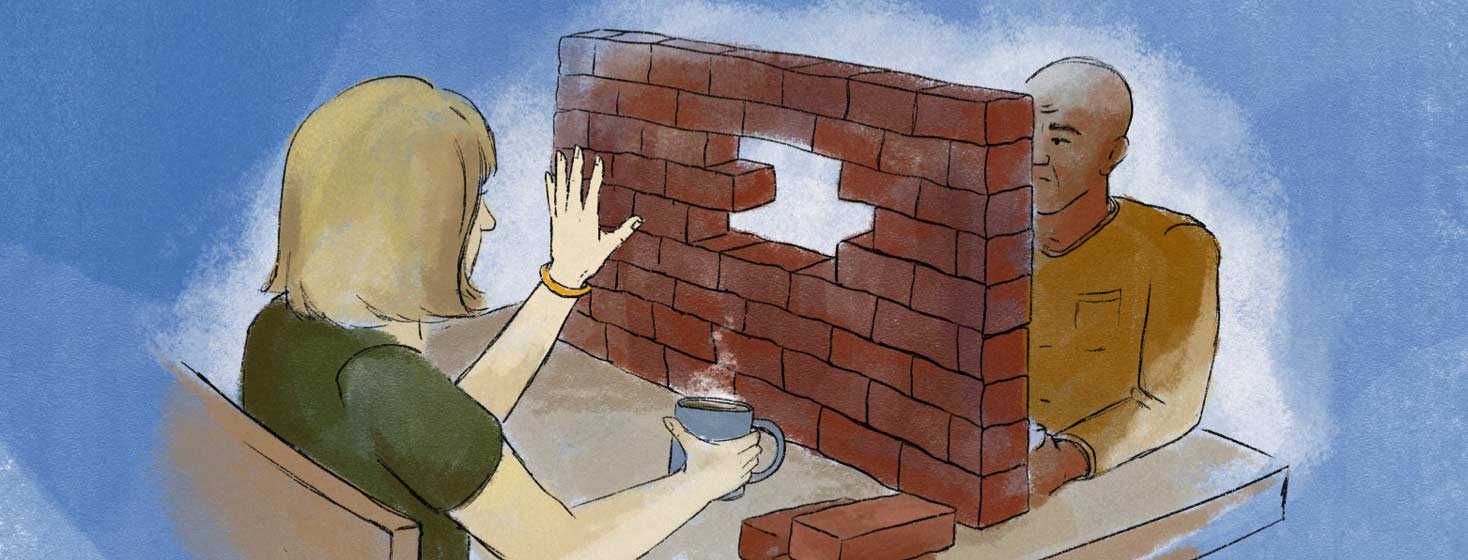The Fallible Caregiver Series: Am I a Vampire Spouse?
"How does that make you feel?" our marriage counselor, Robert, asked me.
"I guess I just feel alone a lot," I replied.
Marriage counseling and metastatic breast cancer
After 5 months of counseling with Robert, we are making progress. We are not going to couples therapy because we are fighting often or on the brink of ruin. We go because metastatic breast cancer has thrown a monkey wrench into our lives and our marriage, and we need help learning how to navigate through those new and unique challenges. We need help understanding and responsibly handling our emotions and seeing issues from a bigger perspective.
Intimacy
In this therapy session, we were discussing issues with intimacy–or lack of it–and then the unhealthy way at times I react to it, which is to drink too much and tune the world out.
I forget the exact issue, but Robert asked me how it made me feel (typical therapist question). Alone. It makes me feel alone and more needy than ever. Then I get depressed ("woe is me"). Then I get pissed ("screw this").
The 3 candles analogy
That's when Robert told us the analogy of the 3 candles. Marriage is like 3 candles standing next to each other in a row. The middle candle is bigger than the candles on the left and right. The middle candle represents your marriage. The candle on the left represents you, and the other represents your spouse. All 3 flames should always be burning.
Ideally, each spouse leans into, feeds into, and gives life to the middle candle flame. Each spouse contributes effort, life, and love to the marriage relationship. The middle candle–the marriage–is not "me" or "you;" it's "us." It's a place where each spouse gives life and love and receives life and love.
Managing expectations
Problems arise, however, when one (or both) spouses bypass the middle candle and seek to find their fulfillment, happiness, and contentment in the other person. Flames flicker and fail when we look to, depend on, and expect from our partner what no other human can or should give us. If I'm not happy or content and I'm hoping my spouse will make me happy and content, then I can expect that neither of us will be satisfied or content, and a meltdown is around the corner.
"So, we don't want to be a vampire spouse sucking the life out of our partner," I said.
Robert nodded.
Being self-sufficient for each other
Clark is one of my best friends and life mentors. Clark has a beautiful marriage and wisdom like Obi-Wan Kenobi.
After my therapy session, I called him, and as we talked about life, I told him about the 3 candles and the article I planned to write.
Clark shared that your self-sufficiency and happiness are not primarily for me.
"Ah, yeah, I can see that now," I replied.
He continued, "You need to find your own contentment and happiness within first so that you can better serve your partner and continue to be a blessing to her."
There it is—the wisdom of the ages–or the wisdom that comes from age. I need to continue working to find my inner contentment and happiness so that I can continue serving my wife and fueling the middle marriage candle. Doing that will free my spouse from the burden of perfection and serving as my God.
The vampire test
So, how do you know if you're acting like a self-sufficient spouse or a vampire? Here are 4 questions I asked myself and that you can ask yourself:
- Am I taking more than I give in the relationship?
- Am I expecting my spouse to make me happy?
- Am I calmly and caringly verbalizing my need/want, or does my complaining cause shame, guilt, fear, and despair?
- Am I honestly working on myself as I know I should, or am I expecting my spouse to fix me and my issues?
If you're like me, the collar feels tight after taking that test. I've got some fangs to shave down.

Join the conversation